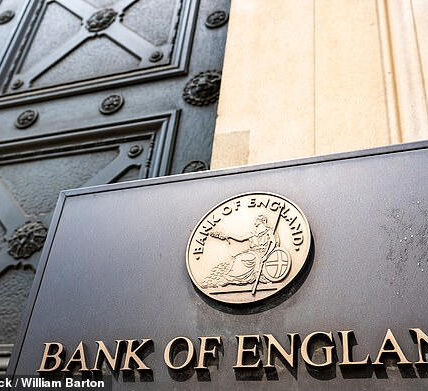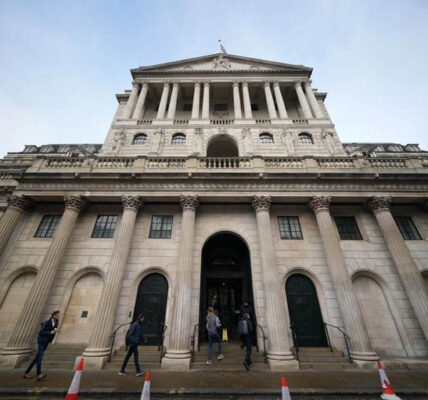Global Recession Risks 2024: What You Need to Know
Global Recession Risks 2024 are causing significant market concern. Discover what this could mean for the economy, stock markets, and your financial future.

© (Copyright 2024 The Associated Press. All rights reserved)
Understanding Global Recession Risks 2024
As the global financial markets face turbulence, many are concerned about the Global Recession Risks 2024. Recent events, including sharp declines in major stock indexes and worrying economic indicators, have fueled speculation about a potential economic downturn. Here’s a clear breakdown of what this could mean for you and the broader economy.
Market Reactions to Economic Uncertainty
The week began with a dramatic drop in global equities markets. The Dow Jones Industrial Average fell nearly 2.5%, equivalent to a loss of about $2.50 for every $100 invested if tracked by the Dow. Similarly, the S&P 500 and Nasdaq Composite experienced declines of approximately 3% and 6%, respectively. This significant drop reflects heightened fears about a possible recession.
Goldman Sachs, a leading financial institution, has raised the probability of a US recession from 15% to 25% over the next year. This increase is partly due to a weaker-than-expected jobs report for July, which showed that the US added only 114,000 new jobs, falling short of the anticipated 175,000. Additionally, the unemployment rate ticked up from 4.1% to 4.3%, marking a level not seen since October 2021.
What Is a Recession?
To understand the Global Recession Risks 2024, it’s essential to define what a recession is. Officially, a recession is a period of significant decline in economic activity that lasts more than a few months. The National Bureau of Economic Research (NBER) is responsible for declaring when a recession begins and ends. They consider various factors such as employment numbers, real personal income, sales, industrial production, and consumer spending.
Typically, a recession is associated with a decline in GDP of about 2%. In severe cases, this decline can be as much as 5%, according to the International Monetary Fund (IMF). Recessions can be triggered by factors like high asset prices, supply chain issues, poorly timed economic policies, rising unemployment, and crashes in housing markets.
Recent Economic Indicators
The Global Recession Risks 2024 have been amplified by recent unemployment trends and economic indicators. The July jobs report revealed a slowdown in job growth and an increase in unemployment. While this data is concerning, it’s crucial to view it in context. Goldman Sachs’ chief economist, Jan Hatzius, reassures that the US economy remains generally stable. He notes that while the risk of a recession has increased, it remains “limited.”
The Federal Reserve has room to adjust interest rates as needed, and any recent job losses seem to be more temporary rather than permanent. This suggests that while the risk of a recession has grown, it is not necessarily imminent.
The Sahm Rule and Recession Predictions
One tool for predicting recessions is the Sahm Rule, named after former Federal Reserve economist Claudia Sahm. According to this rule, a recession is likely when the three-month moving average of the unemployment rate is at least 0.5 percentage points above the 12-month low. For July 2023, this would mean the unemployment rate is closely monitored for potential recession signals.
Despite the recent uptick in unemployment, Sahm has stated that, according to her rule, the US is not currently in a recession. However, she acknowledges that momentum might be moving in that direction, and a recession could become more likely in the future.
Global Impact and Market Reactions
Concerns about a US recession have not only affected domestic markets but also global ones. Japan’s Nikkei index fell by 12.4% on Monday, marking its most significant one-day drop since October 1987. European markets also experienced sharp declines, with some of the most substantial downturns seen in over a year.
This raises the question of whether fears about a US recession could lead to a global economic downturn. The interconnected nature of global economies means that significant changes in one region can have far-reaching effects.
Recession vs. Depression
It’s also important to differentiate between a recession and a depression. A recession is generally a temporary economic decline, while a depression is much more severe. Depressions involve a significant drop in GDP, usually more than 10%. For example, the Great Depression of the 1930s saw GDP fall by about 30% and unemployment reach 25%.
In contrast, the most recent US recession, known as “The Great Recession,” lasted from December 2007 to June 2009. It was characterized by a severe economic downturn but did not reach the levels of a depression. Recovery was slow, with moderate growth and high unemployment for an extended period.
Current Outlook and Future Prospects
Despite the current concerns and market volatility, some analysts believe that the broader economy might not be as severely impacted as the stock markets suggest. Dhaval Joshi of BCA Research points out that while there is fear of a recession, particularly in the stock market, the actual impact on the broader economy may be less pronounced.
Joshi highlights that the current situation involves a “decoupling” between strong economic growth and rising unemployment, a scenario that is unusual but not necessarily indicative of an imminent severe recession.
Conclusion
The Global Recession Risks 2024 are real and deserve attention, but the situation is complex and evolving. While there are signs of economic strain, including market declines and rising unemployment, a recession is not yet a certainty. The economy remains resilient in many areas, and tools like the Sahm Rule and Federal Reserve policies provide some reassurance.
As we navigate these uncertain times, staying informed and understanding the factors at play can help in making sound financial decisions. Keep an eye on economic indicators and expert analyses to better grasp the full picture of the current economic landscape.
ALSO READ:
UK Interest Rate Cut 2024: 5 Incredible Benefits for Your Wallet



